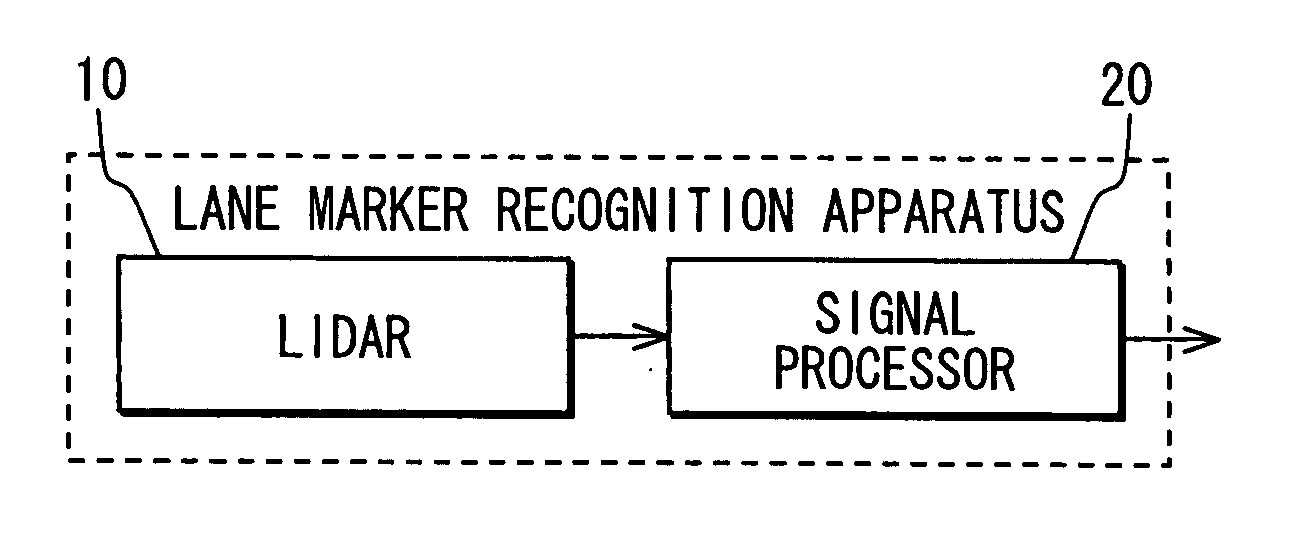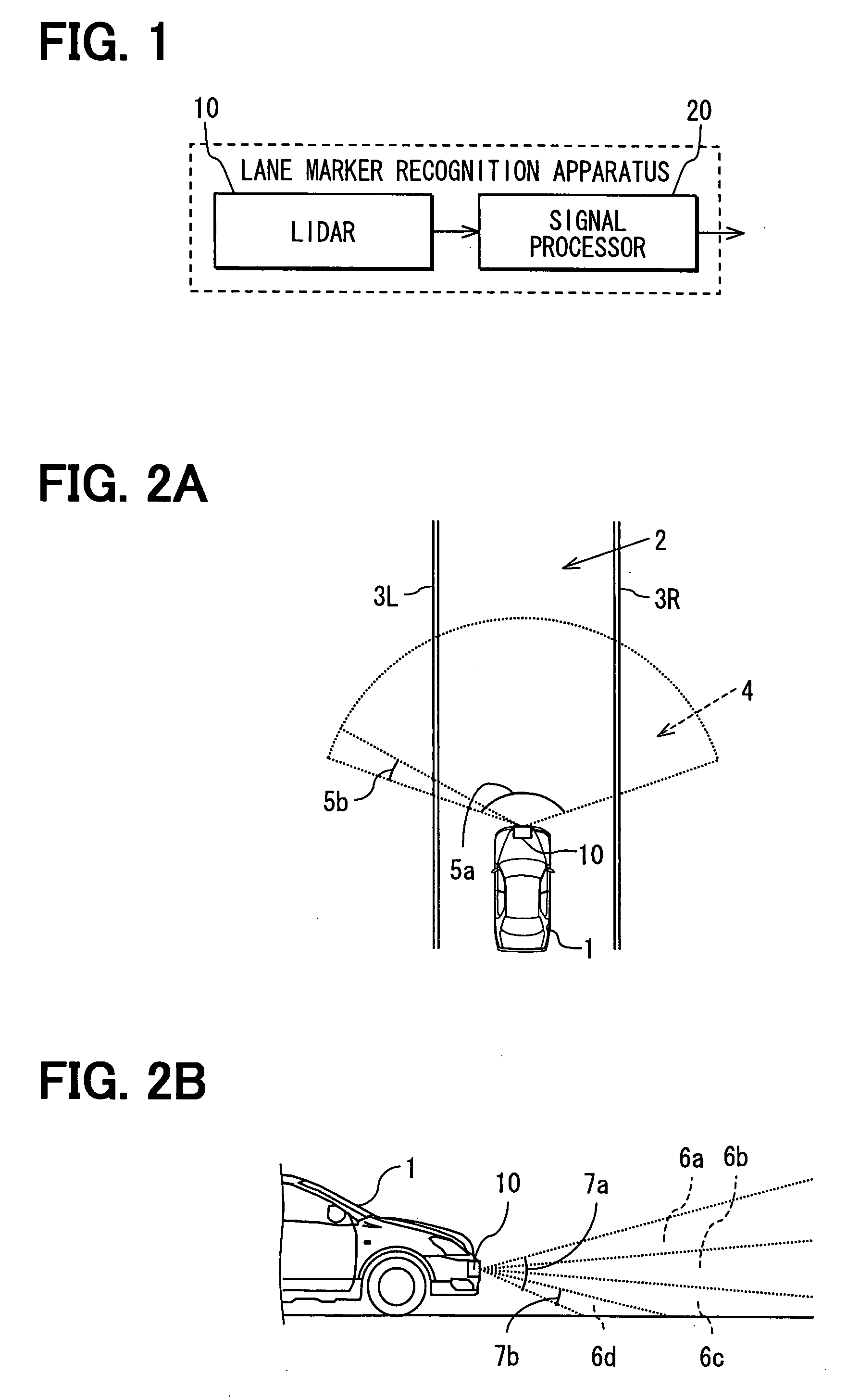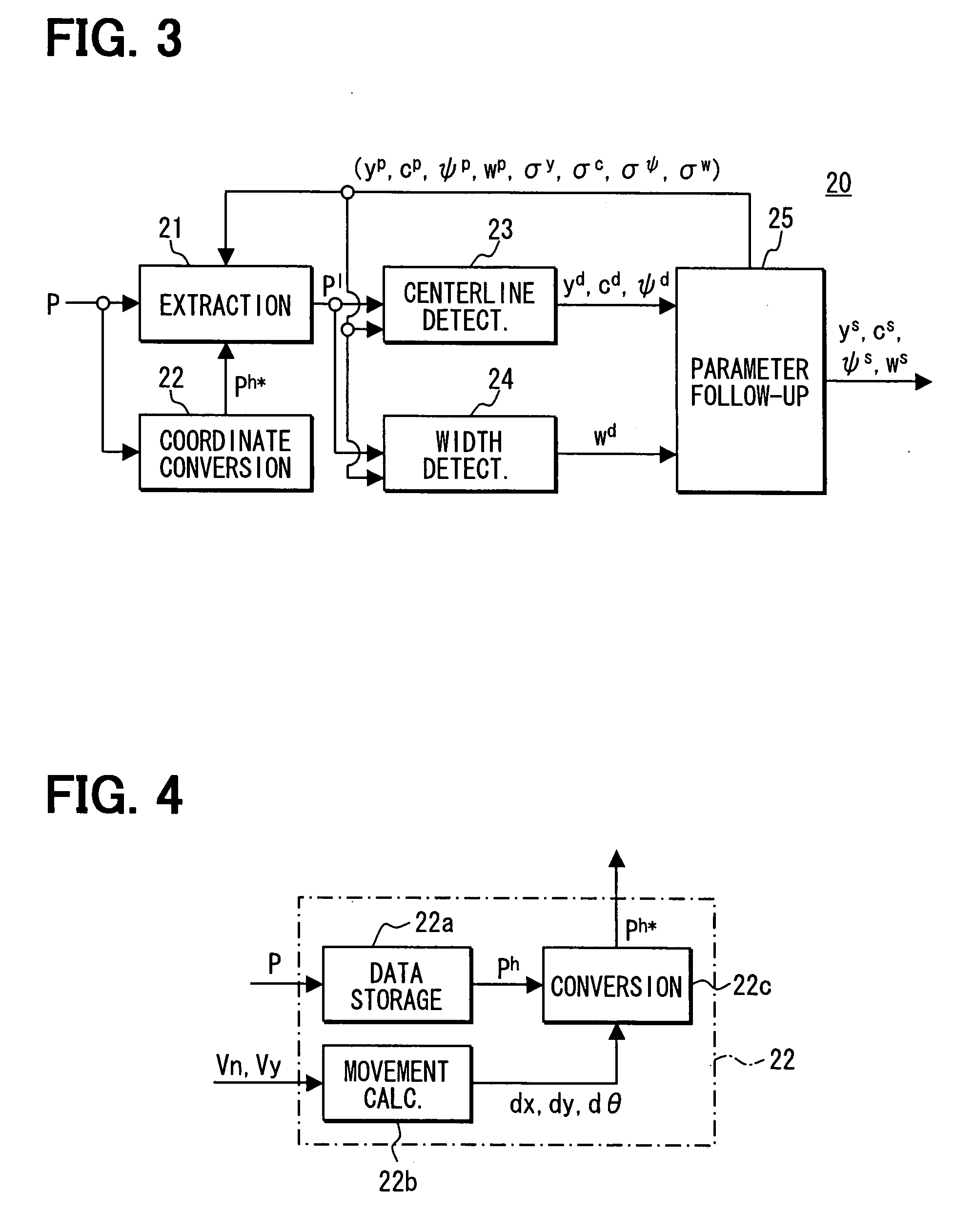Lane marker recognition apparatus
a recognition apparatus and lane marker technology, applied in the direction of process and machine control, using reradiation, instruments, etc., can solve the problem of mis-recognition of lane markers, and achieve the effect of robustly recognizing lane markers
- Summary
- Abstract
- Description
- Claims
- Application Information
AI Technical Summary
Benefits of technology
Problems solved by technology
Method used
Image
Examples
Embodiment Construction
[0022]A vehicular lane marker recognition apparatus according to an embodiment of the present invention will be explained below. The apparatus performs recognitions for lane markers on roads periodically (i.e., with repeated cycles from a past cycle (including a previous cycle) to a present cycle, further to a future cycle (including a next cycle). The apparatus is provided in a subject vehicle and includes a lidar instrument 10 (i.e., a laser radar instrument) and a signal processor 20, as shown in FIG. 1.
[0023]The lidar instrument 10 is a known in-vehicle laser radar sensor. It scans (i.e., radiates laser beams to) surfaces of a road ahead of (i.e., frontward of) the subject vehicle in a range having a predetermined angle, and receives the reflection. Here, the lidar instrument 10 may scan surfaces rearward of the subject vehicle. The lidar instrument 10 measures a distance to a reflection object (i.e., an on-road characteristic object) on the surface of the road within the radiat...
PUM
 Login to View More
Login to View More Abstract
Description
Claims
Application Information
 Login to View More
Login to View More - R&D
- Intellectual Property
- Life Sciences
- Materials
- Tech Scout
- Unparalleled Data Quality
- Higher Quality Content
- 60% Fewer Hallucinations
Browse by: Latest US Patents, China's latest patents, Technical Efficacy Thesaurus, Application Domain, Technology Topic, Popular Technical Reports.
© 2025 PatSnap. All rights reserved.Legal|Privacy policy|Modern Slavery Act Transparency Statement|Sitemap|About US| Contact US: help@patsnap.com



